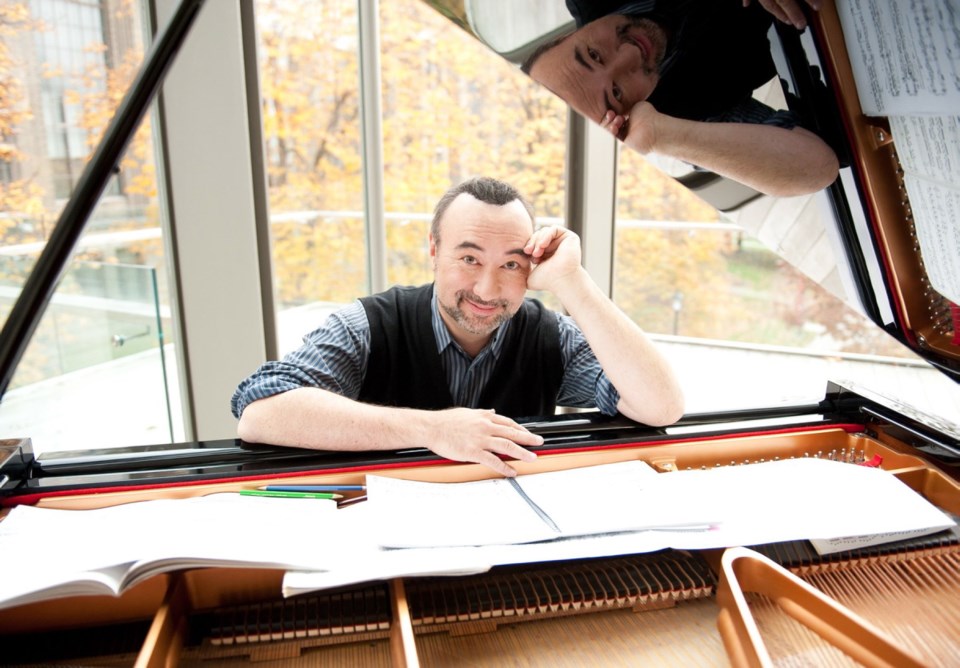What: Jon Kimura Parker plays Brahms
When: Saturday at 8 p.m., Sunday at 2:30 p.m.
Where: Royal Theatre
Tickets: $18 to $75 (including discounts for students/seniors) at 250-386-6121 or rmts.bc.ca.
Pianist Jon Kimura Parker made a surprising calculation last week while on tour in Hong Kong.
The renowned Canadian musician realized he had first played with some of his fellow musicians at the chamber music festival in 1984.
“When I realized that was 30 years ago, I kind of freaked out. It’s just kind of shocking to realize,” said Parker, 54.
It seems to be the season of 30th anniversaries for Parker, who will perform Johannes Brahms’ Piano Concerto No. 1 with the Victoria Symphony this weekend.
That’s the same piece that won him first prize at the prestigious Leeds International Piano Competition in 1984.
“That was the first time I ever played it,” Parker said. “It’s a work that’s just become very close to me; over the years I’ve performed it many times.”
The competition was one of the early signs that Parker was on track to build a successful music career, which has been marked in more recent years with an Order of Canada and Governor General’s Award.
Today, he lives with his family in Houston, Texas, splitting time between touring and teaching at Rice University.
He said he shares the best lessons from his own teachers, including the Victoria Conservatory of Music founder Robin Wood, who taught him in Grade 8 and 9.
Wood taught Parker that there are more ways to accomplish one thing and it’s up to the musician to decide the best way for him or her.
“That’s a very important lesson for musicians who are starting to figure out that it’s more than about just playing notes, it’s actually about creating an interpretation,” Parker said.
Not long after, he heard Brahms’ first concerto for the first time.
“I specifically remember the first time I heard it, it was playing on CBC radio,” he said.
Parker grew up in a family of musicians, including his uncle Edward, brother James and cousin Ian. But it was his father, who had no musical training whatsover, who identified both the piece and the performer (Emil Gilels) on the radio.
“We had to wait 20 minutes to find out that my dad was right. He had correctly identified not only the piece but also the recording.”
Parker, who became enchanted with the piece, got the sheet music.
“I started slowly reading through it and of course it was abominably bad, but of course I fell in love with it.”
When he was selected for the Leeds competition, he was dying to play it.
“I remember thinking, if I ever get to play this with an orchestra, wouldn’t that be the experience of a lifetime,” he said. “I had no particular designs that I would do very well, but I did think that if I miraculously made it to the finals, I would play this.”
In the decades since that performance, Parker said he has played the concerto countless times (including a performance under Bernhard Gueller, who joins the Victoria Symphony as guest conductor this weekend, marking another reunion).
When he performs it now, he thinks of it as a young man’s concerto. Brahms himself premièred it at 26, when he was facing pressure to write a symphony but was intimidated by Beethoven’s nine.
“You can kind of tell how really excited he was about writing for full orchestra, so there’s this youthful exuberance about the piece,” Parker said.
Parker said he experiences the piece differently than he did as a young man.
“Among other things, I’ve played a lot more Brahms since then,” he said. “That can give you some extra insight into the music in a certain way. But I couldn’t really put into words what’s different about how I play it now, compared with how I played it then.”



